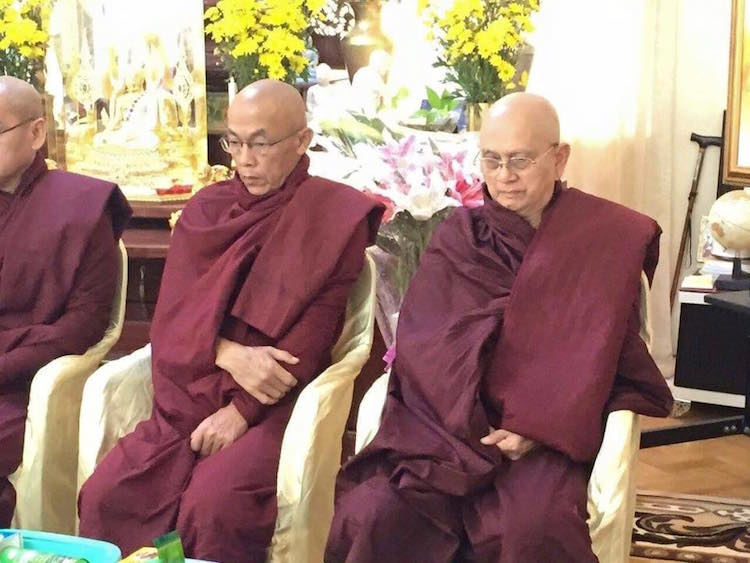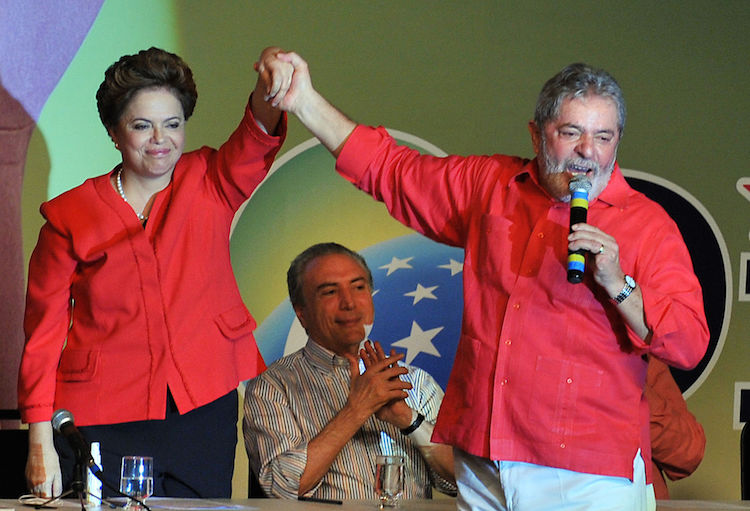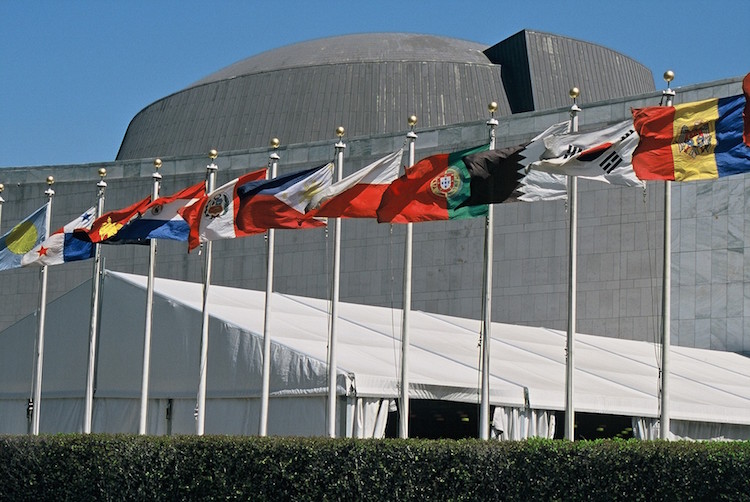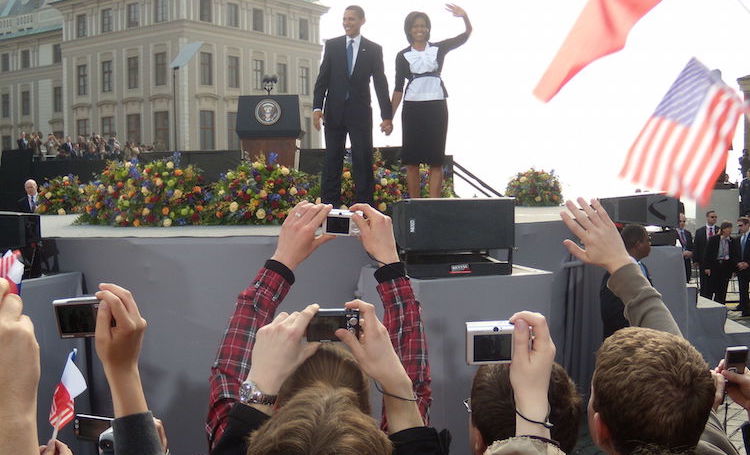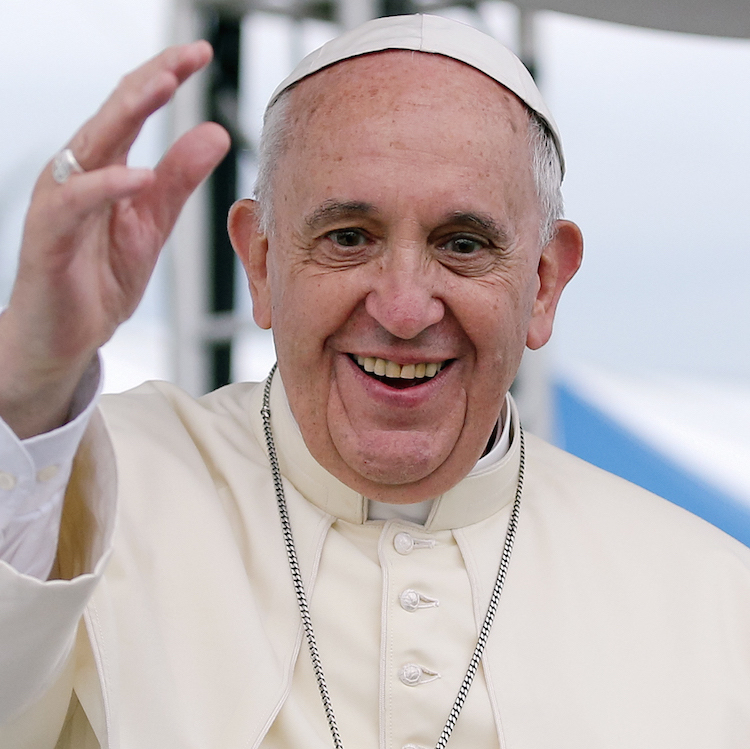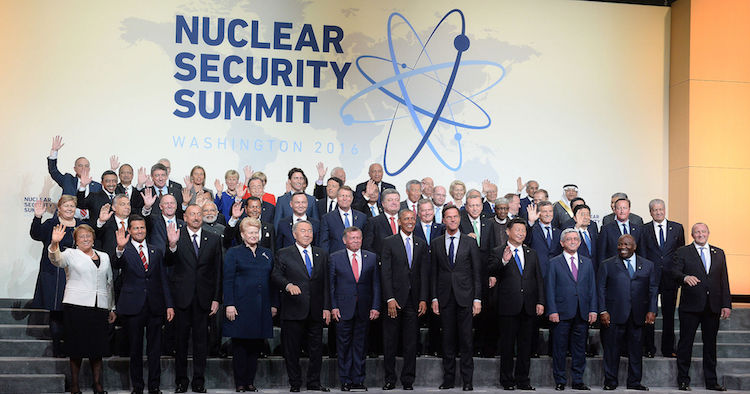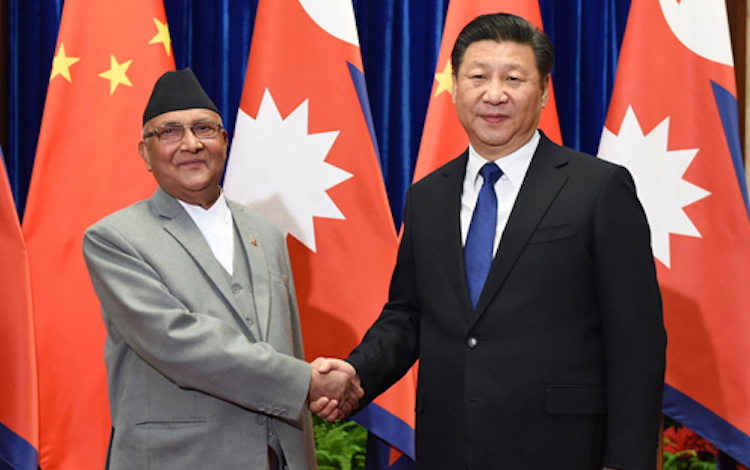By Special Arrangement with The Buddhist Channel*
YANGON – Myanmar’s retired junta General Thein Sein has become a monk. He has been ordained as U Thandi Dhamma. According to reliable sources, it was the well known Dhamma teacher Dr. Ashin Nyanissara or better known as Sitagu Sayadaw who implored him to take up monkhood.
Thein Sein is widely regarded as the junta head who opened up Myanmar. After taking over from military dictator Senior General Than Shwe in 2011, he was expected to carry on as an opaque and isolationist ruler, much like his feared predecessor. After all, in 1998 he was personally named by the United Nations Special Rapporteur on human rights in Myanmar for directly ordering his soldiers to commit human rights abuses.
Records have indicated that his history in brutality was no less than previous junta heads, such as Ne Win and Than Shwe.
Reflecting on the Genocide in Rwanda
NEW YORK (IDN | GIN) – Candle lighting, a minute of silence, the laying of wreaths and other memorial ceremonies will be held on April 11 when Rwanda recalls the genocide in 1994 that took 800,000 lives.
It is also a time for diplomats and local leaders to talk with communities about the atrocities of genocide and the importance of working towards a peaceful way of life. Student conferences, exhibitions, and other commemorative activities are also held.
The activities officially last a week, but the commemoration continues up to July 4, marking 100 days of genocide.
This year, a cadre of hundreds of social workers trained to help trauma victims are expected to be available to help survivors still struggling with memories from that time.
Liberia Outsourcing Public Education to a U.S. Company
NEW YORK | MONROVIA (IDN | GIN) – In what might be a first in Africa, Liberia will put its entire pre-primary and primary education system in the hands of a U.S. start-up that would bring a charter school model to struggling schools on the continent.
Bridge International Academies already has a presence in Kenya, Nigeria, and Uganda. Despite a headquarters in Nairobi, a listing for the company shows a San Francisco address.
When Liberian Education Minister George K. Werner announced in January that all pre-primary and primary schools would be outsourced to Bridge to manage, he set off a furor among local and international education experts. The arrangement, they said in an interview with the New Dawn newspaper, would be a “blatant violation of Liberia’s international obligations under the right to education and have no justification under Liberia’s constitution.
Why Brazil Must Not Fire its President
Viewpoint by Jonathan Power
LUND, Sweden (IDN | INPS) – The Brazilians have an elected president. They must keep her. If Dilma Rosseff is pushed to resign democracy has failed.
Two years ago she won re-election handsomely. That is the source of her mandate. From that she derives her legitimacy. The only thing that could topple her is if hard evidence emerges that she is crook- in her case supposedly stole millions of dollars from the Brazilian oil giant, Petrobras, of which she was once head of the board. Then Congress would be within its rights to discuss her impeachment.
But there is no evidence of her personal corruption – although there is evidence aplenty that her party, The Workers’ Party, has received a lot of black money, not just from Petrobras.
Two New Candidates for UN Chief Undermine East European Claims
By Rodney Reynolds
UNITED NATIONS (IDN) – When Antonio Guterres, the former UN High Commissioner for Refugees and ex- Prime Minister of Portugal, announced his candidature for the post of UN Secretary-General on February 29, he virtually undermined the longstanding claim that the next UN chief should be from Eastern Europe under a system of traditional geographical rotation.
But traditions are generally meant to be trodden down – at least at the United Nations.
Until Guterres’ declaration, all other officially declared candidates were from Eastern Europe: Dr Srgjan Kerim of the Former Yugoslav Republic of Macedonia; Vesna Pusic of the Republic of Croatia; Dr Igor Luksic of Montenegro; Dr Danilo Turk of of Slovenia; Irina Bokova of Bulgaria; and Natalia Gherman of of Republic of Moldova.
On April 4, Helen Clark, the former Prime Minister of New Zealand, announced her official candidature for the same post, throwing the race even more widely open.
UNDP’s Helen Clark Lays Claim to the Post of UN Chief
By J Nastranis
NEW YORK (IDN) – Helen Clark, New Zealand’s first woman Prime Minister from1999 to 2008 and current Administrator of the United Nations Development Programme (UNDP) since 2009, is convinced that she is “up to the task” of leading the United Nations when Ban Ki-moon’s term expires at the end of the year.
Helen Clark threw down the gauntlet to three women and four male candidates for the post of the UN Secretary-General on April 4. The woman candidates are: UNESCO Director-General Irina Bokova of Bulgaria; Vesna Pusic, former Foreign Minister of Croatia, and Natalia Gherman, former Foreign Minister of the Republic of Moldova. The male candidates are: Srgian Kerim of the former Yugoslav Republic of Macedonia; Igor Luksic of Montenegro; Danilo Turk of Slovenia, and former UN High Commissioner for Refugees Antonio Guterres, who also served as the Portuguese Prime Minister.
2016 Nuclear Security Summit: Obama’s Last Hurrah
Analysis by Jayantha Dhanapala*
KANDY, Sri Lanka (IDN) – In the practice of general medicine a placebo is defined as a medicine or a procedure prescribed for the psychological benefit for the patient – to humour or placate rather than for any physiological or therapeutic effect. U.S. President Barack Obama’s rhetoric in Prague in April 2009 gave the world a tantalizing vision of a nuclear weapon free world: “The existence of thousands of nuclear weapons is the most dangerous legacy of the Cold War …. I state clearly and with conviction America’s commitment to seek the peace and security of a world without nuclear weapons.”
Since then we have had the anti-climax of four Nuclear Security Summits and repeated warnings about nuclear terrorism but no meaningful nuclear disarmament.
Pocketing his prematurely awarded Nobel Peace Prize, the U.S. President has reverted to being the conventional leader of the greatest military-industrial complex in the world spending approximately US $ 610 billion annually of the global military expenditure of US $ 1.8 trillion and a staggering US $ 355 billion over the next ten years on nuclear weapon modernization.
When the Pope Turned His Back
Analysis by Jonathan Power
With his focus on economic justice, Pope Francis is still riding a wave of adulation three years into his job. And perhaps it’s deserved, but as leader of the Jesuits and then as bishop and archbishop in Argentina, he failed to publicly denounce the abuses of the military junta. Jonathan Power compares the pope’s silence to the courage of Brazil’s church hierarchy, which stood up to dictatorship. Power urges the pope to explain exactly what went on and how the Argentine church erred. The pope’s admission, Powers argues, would inspire his followers to think more profoundly about moral dilemmas and, perhaps, even help them be braver in the face of evil.
LUND, Sweden (World Policy Journal) – It’s no wonder Pope Francis is still riding a wave of adulation nearly three years into his job: He speaks out against child abuse within the Catholic Church and against homophobia at large; he renounces the panoply, regalia, and bureaucracy that repels so many; he condemns “the idolatry of money” and says “working for a just distribution” of wealth is a “moral obligation.” And sometimes, at midnight, he visits the homeless on the streets of Rome, wearing only a black cassock.
UN Chief Welcomes Outcome of Nuclear Security Summit
By J Natranis
NEW YORK (IDN) – The international community must pursue broader measures of prevention in the context of the UN Global Counter Terrorism Strategy, in particular by addressing the conditions conducive to terrorism, especially preventing violent extremism, stopping the flow of foreign fighters, blocking terrorist financing, and working to promote human rights and sustainable development, according to the United Nations Secretary-General Ban Ki-moon.
Reacting to the outcome of the Nuclear Security Summit that concluded on April 1 in Washington, D.C. Ban’s Spokesperson said: “The Secretary-General welcomes the outcome of the 2016 Nuclear Security Summit. He wholeheartedly endorses the Communiqué adopted by the participating States as well as the Action Plan in support of the United Nations. These will help to ensure that the gains made through this process will be sustained in the future.”
Nepal Between the Dragon and the Elephant
Analysis by Shastri Ramachandaran
MUMBAI (IDN) – Yet another South Asian country, Nepal, is falling for the charms of China. The language of this new dalliance, regardless of where it may lead, is causing unease in India. Arriving in Beijing on March 20 for a week-long visit, Nepalese Prime Minister KP Sharma Oli said that his country’s relationship with China was “as high as the Himalayas”, which he said symbolised friendship.
In what could be a red rag to New Delhi, Oli called China an “all-weather friend”, a term loaded with China’s value for Pakistan as a deterrent against India. China-Pakistan friendship, however, has moved to a higher realm — that of “iron brothers forever”, as Chinese President Xi Jinping underscored on his first state visit to Pakistan in April 2015. The parallel with Pakistan does not end there.

